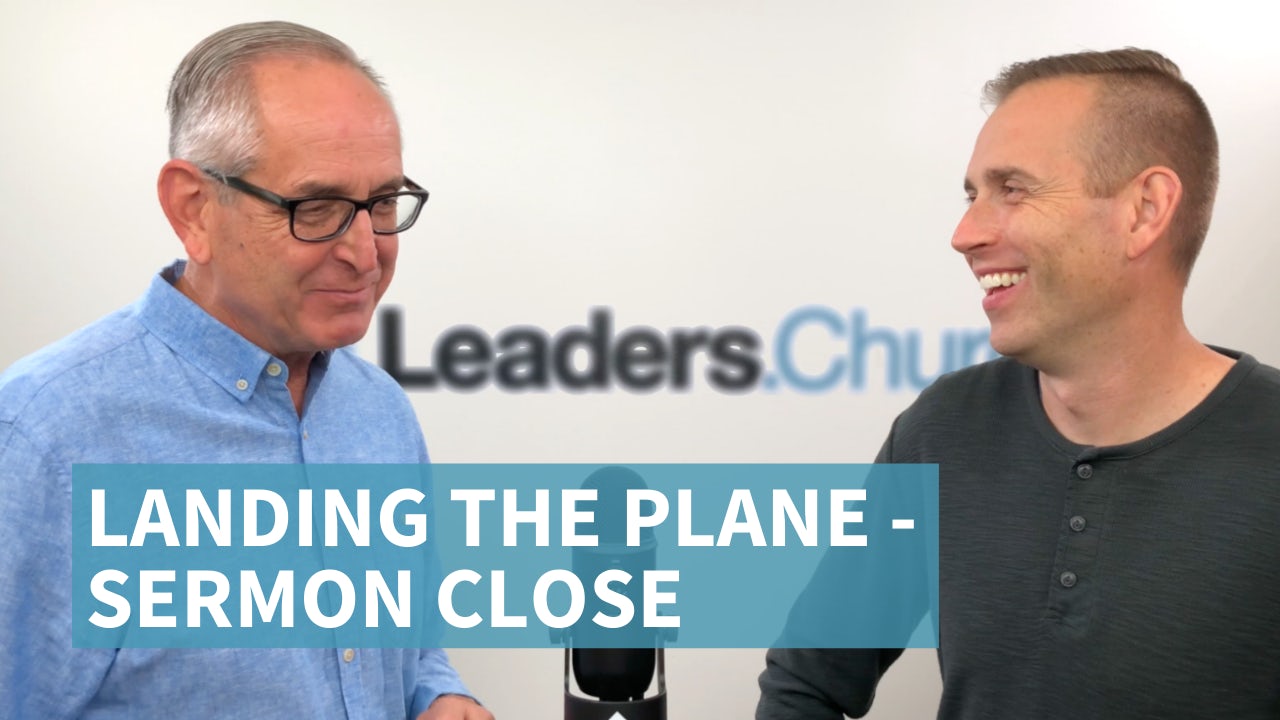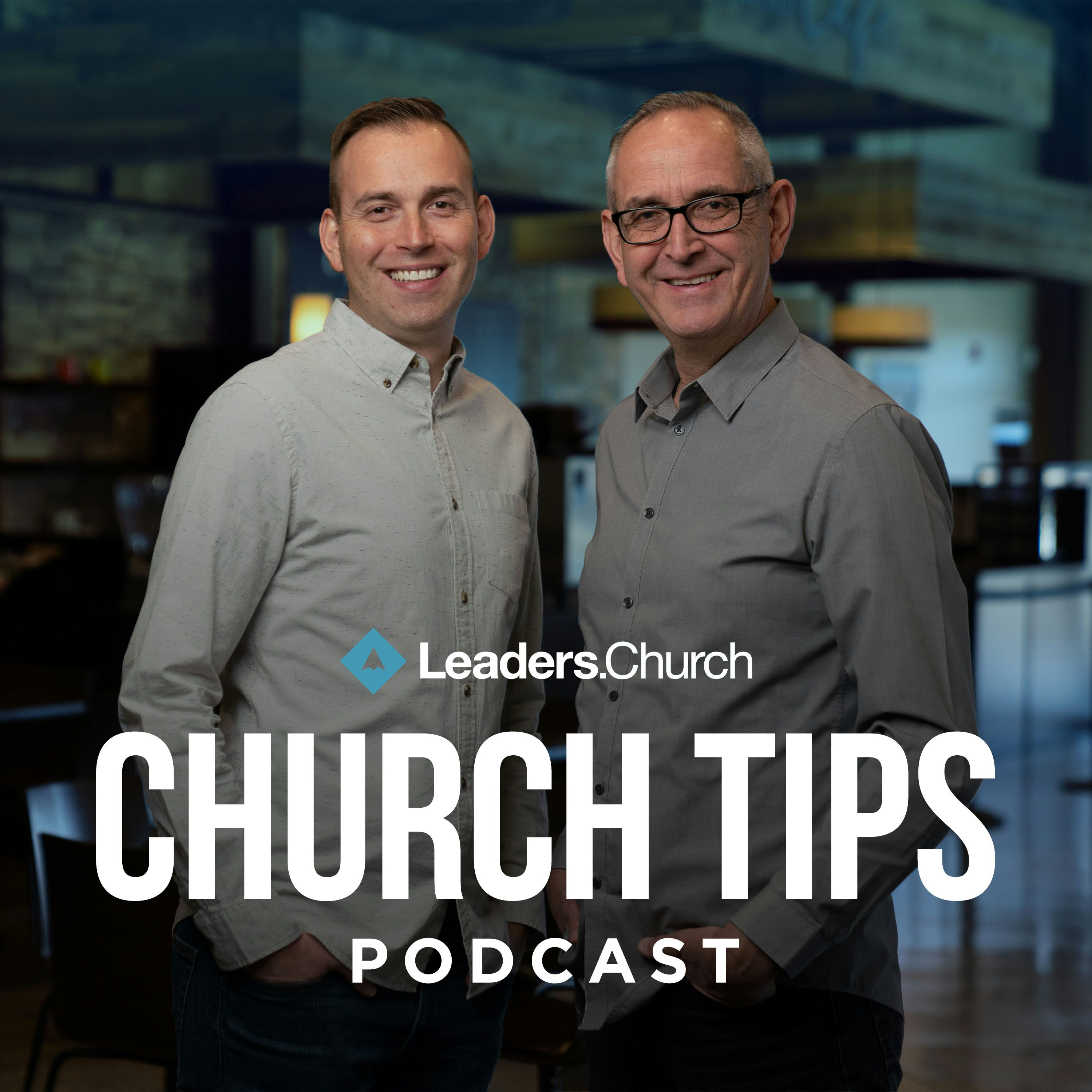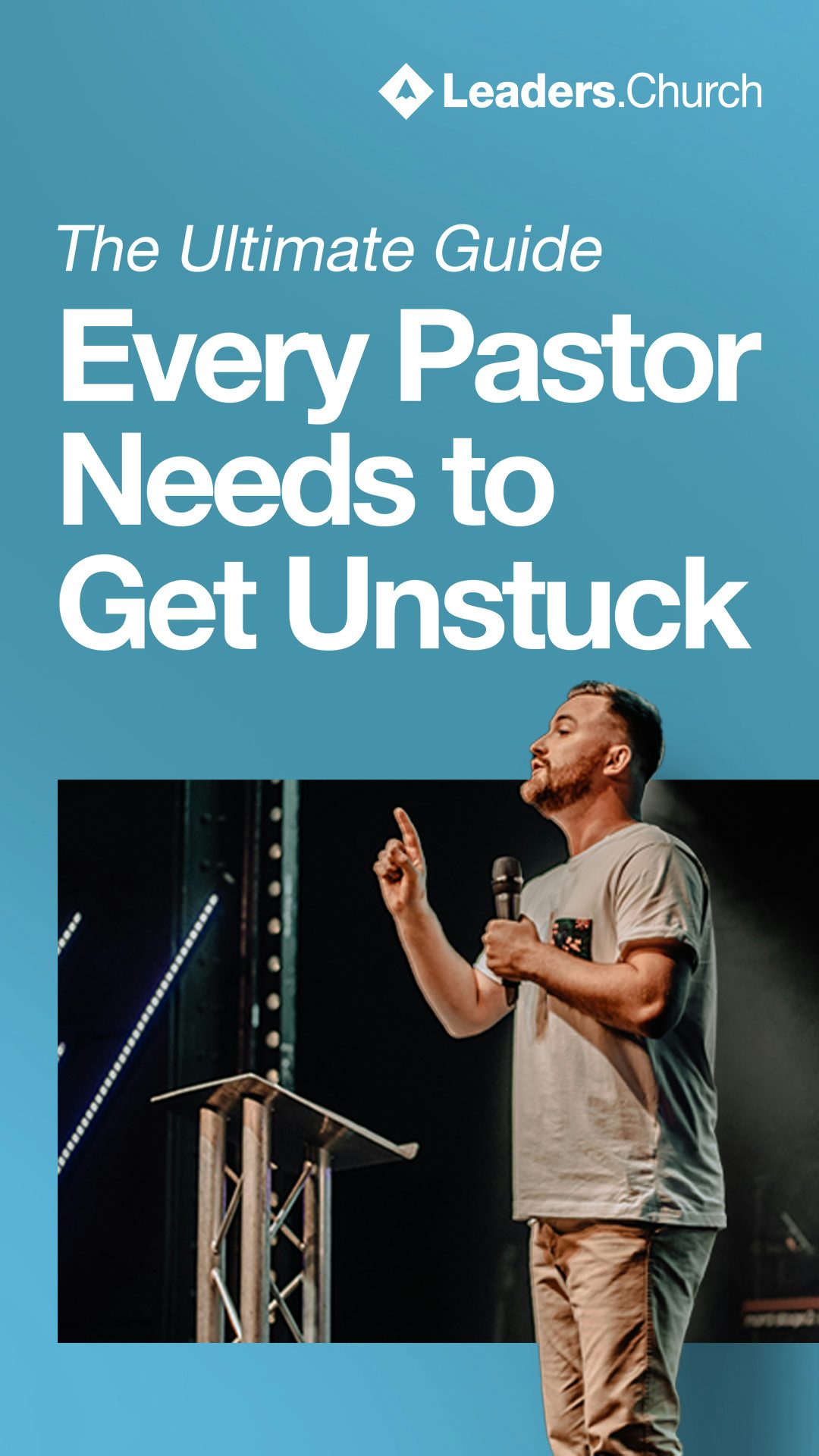079 – Landing the Plane – Sermon Close
What’s in this Episode?
Have you ever struggled to land the plane when you’re preaching a sermon? You’ve got great content, you’ve worked so hard to put it all together, and as you’re delivering it comes time for the ending when you’re supposed to give the call to action for people to be able to move forward. And what do you say? And how do you know what to do? And how can you make sure to land it in a way that’s going to be memorable and helpful for them as they leave that day? Well, in today’s episode, we’re going to talk about how to close a sermon.
Read the Transcript
Dick Hardy 0:30
Hey, friends, great to have you with us on this Church Tips podcast. We are wrapping up today, a three part series on the topic of preparing and delivering sermons. And in Episode 77, we talked about the development of the intro. And Jonathan did a great job walking us through that. And then the last episode 78, we talked about the building the body of the message, to communicate the truth of the gospel. And now today, we’re going to give us the, you’re going to give us the wrap up of how pastor actually builds his or her conclusion, for the response that the pastor/preacher believes they want. So we’ve really had some great feedback on this. And we hope you find this valuable today yourself. So as we’re wrapping this thing up, Jonathan, this issue of the conclusion can be a real sticking point for pastors. You know, they work hard, they pour themselves into this thing. And then they’re trying to bring it home. And so I’d like to have you just give us a jumpstart on what you want to have happen. We reference this message that we were using kind of as a model that you preached over in Kansas, or a week or so ago. Yeah, what is something that you wanted to have happen out of that particular message?
Jonathan Hardy 1:48
Well, and I think this applies for every message that a person communicates, obviously, we’re using mine is kind of this case study just for fun here to give a real practical example. I think every message should have some sort of a big idea that you’re trying to communicate throughout the entirety of the message. And so that’s the one that I, you know, I had, and even actually, that was one of the screen slides, you know, for when I was talking, I was like, hey, I better tell them up front. This is the big idea that I want you to know today. So, you know, I believe every message should have that. So whether you’re doing an expositional preaching through a book of the Bible, or whether you’re preaching a topical message, there’s a theme, there’s something you’re trying to communicate overall. I mean, you’re not just rattling off points, randomly, they all tie to something. So whatever, is that something, that big idea. And so then the ending is the culmination of that big idea. And bringing it back home, to giving them whatever that call to action is. And so every call to action is different. Because it all depends on what’s the big idea of the message based on the scripture that you are communicating. And so once you have all that figured out, that really is what drives home this idea that you want to have a call to action that you want to give to them. So they then can take that and say, okay, this is my action step for the week based upon the Scripture.
Dick Hardy 3:16
Yeah, no, that’s good. That’s good. Now, I know you to be a very ordered guy, the very process oriented. That’s right.
Jonathan Hardy 3:23
Oh, wow, how did you know?
Dick Hardy 3:25
I don’t know… just kind of comes out. You know, there would be pastors that would take this approach that I’m going to prepare my intro, and that intro is taking us to the body of the message. But when I get to the end, it’s the Holy Spirit’s job. And I’m just gonna let it happen at the end. How do you… How would you coach somebody like that?
Jonathan Hardy 3:48
Well, first, I would say that, either they think that, or they just don’t put the time into it, because they put all the time into the intro and the points that by the time they get there, they’re like, well just wrap it up and call it good. I think this goes back to what I talked about in either 77 or 78. I don’t remember which one where there’s emerging, an integration between the physical and the spiritual. And they aren’t completely separate. We don’t compartmentalize the two. We are human beings, but we’re also spiritual beings. And so we work together. So then you come to this whole concept of wrapping this thing up. Well, I think the Holy Spirit can and should lead, but I think he also does that the week before when you’re prepared.
Dick Hardy 4:31
In your planning process.
Jonathan Hardy 4:32
Yeah. And so I don’t think you should just go into it blindly or unprepared. Now could the Holy Spirit as you’re in and as you’re getting the feedback and through the message, or if you have two services after you preach the first one, you realize, oh, hey, I can make some adjustments to the second one, Of course, you know, sure, sure. But don’t go into it unplanned at all. I don’t think that’s a good steward of it.
Dick Hardy 4:58
No winging it!
Jonathan Hardy 4:59
You know, because you can ask the Lord the week before, how should I close this out? What’s my call to action? How do I bring this thing to a landing? What’s the big idea? All of this stuff. Well, you know, if you’re in tune with God, which hopefully you are, if you’re communicating His word, well, then you’re gonna be able to get some answers before that.
Dick Hardy 5:16
Before five minutes before noon on Sunday morning.
Jonathan Hardy 5:20
Exactly, exactly. Yeah. What a practical way to call people to action on that which you’ve just preached? So just in a practical sense, what would you ask?
Jonathan Hardy 5:33
Well, it goes, it depends on the topic. And it depends on what you’re communicating. You know, if you’re really speaking passage of scripture that’s reading someone’s needs, then you may have some sort of a response, that’s, you know, raise your hand type response or whatever, if you need healing, or, you know, provision or help or whatever, or salvation or whatever. Then there’s the other type where it’s like, you’re literally just communicating the truth. Because you’re going through, like, I know, a pastor who’s going through the book of Acts right now. And they’re just going verse by verse through the book, and he’s been preaching for a long, long time through the book of Acts. So and so in that case, it’s more of a Bible teaching type of sermon, but there’s still a point, it’s still this idea that… the big idea that I mentioned, and so we have to then say, okay, well, then, what can I take that can be a call to action for them? So maybe instead of a response, raise your hand, maybe it’s a piece of homework, maybe that’s like, hey, this week, when you go home, here’s your assignment. Um, and you, you know, you give people non physical homework. You could actually give them out some handouts, or something like that. But it might be just like, hey, here’s the call to action for you to take this week. When you’re in the workplace. One of my seminar professors, I remember he talked about, he always tried to say, well, on Tuesday, do this. And it was just kind of a very specific. So there’s all kinds of things I think you can do. I think the answer to your question as well, just depends on what you just preached on.
Dick Hardy 7:07
Good. Oh, you know, the pastors, preachers regularly deal with this issue. Want to come to the end, and I’ve got mostly believers in the auditorium. But I know I’ve got some unbelievers there. How do I differentiate what I’m, what my call to action is? For people in two different spiritual conditions.
Jonathan Hardy 7:30
Yeah. Well, that’s true. That definitely happens a lot. Probably, again, a little bit goes back to what is the content you’re speaking on. But I certainly think that you could always give people an opportunity to respond, regardless of which camp they’re in. So if your text that you’re preaching on lends itself toward being applicable to both parties, then then that’s great. And you’ve got one thing if it if it’s more geared toward believers, for example, and it’s not geared toward the unbeliever, then I think maybe you say, Hey, you know, when you come to your closing response time, you know, there’s two different groups of people here and you know, for you, this is, you know, for believers, here’s your call.
Jonathan Hardy 7:49
You’re just straight up with it?
Jonathan Hardy 8:15
Yeah, say, hey, if you you know, if you haven’t given your life to the Lord, if you haven’t made him the leader of your life, you don’t follow, you know, you’re not a follower of Jesus yet. However, you word that. You know, then, you know, here’s my encouragement to you take this step first, which is probably salvation or some sort of commitment to follow God. And whether that’s like an altar call type response, or whether that’s no, you recently did a blog post with Scotty Gibbons on that, and we can include a link actually probably in the show notes, where you talk. He talks specifically about the alter call, and how to do that. And and that’s actually a really excellent. breakdown. So the point is, I think it’s a little bit subjective. But again, you want to do all that ahead of time. You want to think it through that ahead of time. So you know who’s going to be coming in the auditorium every single Sunday. You know, if you’re preaching regularly, consistently, and so be preparing that call to action based upon the audience. Yeah, that’s good.
Dick Hardy 9:15
Jonathan, this has been great content here on the issue of the conclusion of the message, if you if your pastor is watching this listening to this, what’s a parting shot? You know, if they remember nothing else, remember this about the conclusion of the message.
Jonathan Hardy 9:31
Well, the conclusion is the lasting impression. You know, they may remember the intro. They may remember, a few points here and there, but they’re about to walk out the doors. And so this is your last shot of getting that final hook in them to say, here’s what you need to do to move forward with whatever it is that you based upon the text of Scripture. And so that’s the lasting impression as they walk away out the doors, into their car, they’re driving away, they close the door shut, you know, they turn to their spouse, well, what do you think or what did God speak to you or what? Well, so we want that last thing to be motivating and helpful and encouraging to them that they can accomplish and do whatever it is that God wants them to do based on the scripture.
Dick Hardy 10:19
Well and that is so good. I remember I said back a number of years ago, listening to a communicator, said that this happens, every Sunday of life every weekend of life where somebody goes into a service, and they walk out into that parking lot, and they get in the car for a split second, as they’re starting that car. Either they’re saying that was time well spent (and a good conclusion is going to get that kind of response) or they’re saying, man, there’s a lot of stuff I could have been doing today. Yeah, you were working through the power of the Holy Spirit to get that. That was time well spent. That challenged me. So yeah, that’s very good, Jonathan, thank you very much. Again, we’d encourage you to take a look at Episode 77 and 78 the intro and the body talking about the that part of the messages and of course. Feel free to share into these podcasts with friends and family.
Dick Hardy 11:11
You know, we do want to mention that tomorrow night. The introductory offer of the Preaching Track of Church University ends, I mean, it will be available, but the super, super deep discount 67% off and tomorrow night at midnight. So we’ve created at Church University, which is the the education training arm of leaders.Church, the preaching track, which is a comprehensive A-Z, everything you’re going to want to know about preaching. It literally is a college level type course set. It’s a lot. I think it’s 42 or 44 videos inside. Chock full of bonus content that’s going to help you with sermons, sermon outlines or series outlines, calendar templates. We’ve got some bonus videos in there the Scottie Gibbons altar call video is inside. We’re just gonna have a bunch of those in there to help you be a better preacher. God has called you to pastor the church to preach and I’m guessing you’re like Jonathan and I. We work hard at doing it, but we always know we can be better at it. The human giftings the Lord’s given us through the power of the Holy Spirit speaking through us, and then you put something like the preaching track in to augment that, it’s going to help you be a better preacher. We strongly encourage you to jump in there. Go to Church.University.com. You can get all the information on it.
Dick Hardy 12:40
Anything else, Jonathan?
Jonathan Hardy 12:41
No, thank you so much for being with us today. We look forward to talking to you next time. Until then, be blessed.
Subscribe & Follow:
- Subscribe on Apple Podcasts
- Follow on Spotify
- Subscribe to YouTube Channel
- Subscribe on Google Podcasts
- Like us on Facebook
- Follow us on Instagram
- Follow us on Twitter
Other Resources:
- Leaders.Church
- Leaders.Church Blog
- Church University
- Take the Free 5 Day Leadership Challenge for Pastors
- Get Free Access to the 4 Secrets Masterclass









